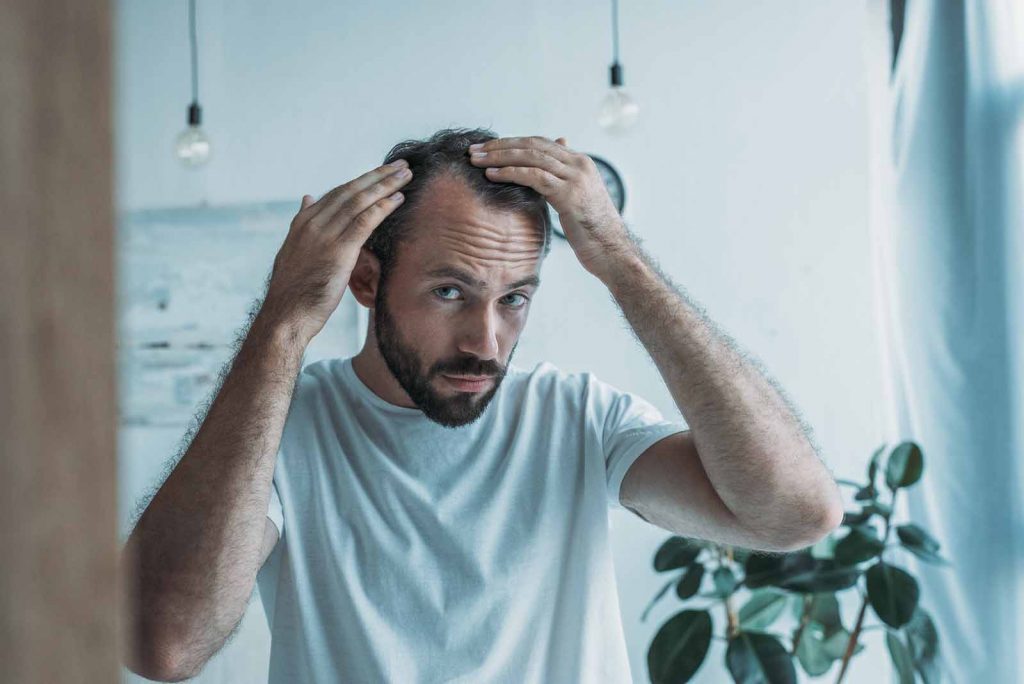Medications & Drugs That Could Lead To Baldness
The Science Behind Hair Loss & Thinning

Medications That May Make You Lose Your Hair
Many medications come with a risk of alopecia and hair loss for different reasons. Here are the types of prescriptions that may lead to premature hair thinning, hair loss, & balding:
- Blood Thinners (Panwarfarin, Sofarin, Coumadin)
- Gout Medications (Lopurin and Zyloprim)
- Beta Blockers (Atenolol and Lopressor)
- ACE Inhibitors (Capoten, Zestril, Prinivil)
- Female Hormones (birth control, estrogen, progesterone)
- Male Hormones (testosterone, anabolic steroids)
- Antidepressants (Prozac, Asendin, Elavil, Paxil, Zoloft)
- Anticonvulsants (Tridione and Depakote)
- Acne Medication (Accutane)
- Vitamin A
- Antibiotics
- Antifungals
- Chemotherapy
- Immunosuppressants
- Thyroid Medication
- Cholesterol Medication
- Parkinson’s Medication
- Weight Loss Drugs
These drugs could cause alopecia for several reasons. Primarily, prescription medications lead to changes in the body that can result in hair loss or thinning. And, of course, not everyone who uses these medications will experience hair loss. This will depend on an individual’s health conditions, genetics, habits, and more.
Hair Loss Prevention & Reversal Methods
While there is no specific way to necessarily prevent alopecia, there are ways to reverse hair loss and promote growth. Today, there are many medications and treatments (such as Rogaine and Propecia) available to help individuals regrow the hair that they lost. It may take several months for a hair growth medication to begin kicking in. Other hair growth treatment options include hair transplant surgery or laser therapy.
In some cases, the only way to reverse hair loss is to stop using a type of medication. However, you should not stop using a prescription medication without talking to your doctor first. If you are wondering whether or not a medication you take comes with a risk of hair loss, ask your doctor about the list of warnings. They will help you wean off of the drug if you decide to stop using it.
Sources
https://www.everydayhealth.com/hair-loss/medications-that-can-cause-hair-loss.aspx
https://www.verywellmind.com/how-long-does-morphine-stay-in-your-system-80288
https://www.webmd.com/skin-problems-and-treatments/hair-loss/drug-induced-hair-loss-2
https://www.webmd.com/skin-problems-and-treatments/hair-loss/qa/what-types-of-drugs-cause-hair-loss





